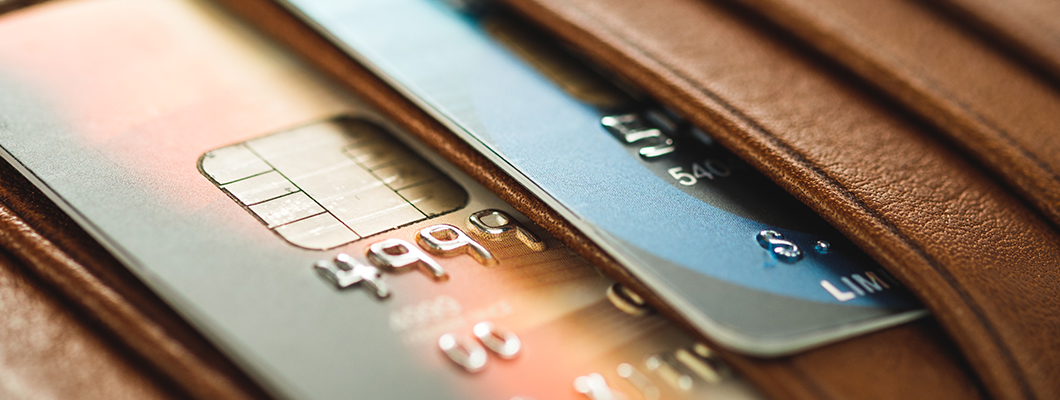
Less known ways to secure your Debit Card
Posted on Thursday, August 13th, 2020 | By IndusInd Bank
Debit cards have become a part and parcel of life. With a lot of people depending on cashless transactions, debit cards are a handy option to make payments. The usage of debit cards increased manifold after demonetization. In July 2019, India had approximately 840.6M debit card users and the number of transactions increased by approximately 14.6%. However, with conveience there’s also an increased chance of theft, online frauds and phishing. This is the reason whny it is important to take the right steps to avoid any such unfortunate incidents and secure your debit card. So, in this blog we discuss some steps to keep your debit cards safe and avoid any fraudulent transactions. Read on.
What are Debit Card Fraud and How Does it Happen?
On a lazy Sunday morning, Madhvi got a text that Rs.25000 was withdrawn from her account. At first, she thought maybe her husband had made a withdrawal, which was not the case. A tensed Madhvi was sure that someone had stolen her debit card and made the transaction. To her surprise, her debit card was securely tucked in the secret pocket of her purse. On further investigation, it was found that the transaction took place from the same ATM that Madhvi visited on Saturday to withdraw money.
These fraudulent practices have become quitecommon across India. The scariest part is a fraudster no longer needs yourdebit card to withdraw the money. So, how do debit card frauds take place? Hereare some of the common methods used to dupe you of your hard earned money.
- Card Skimming: The technique is used to steal the data of your electronic card. Fraudsters steal your card data and create a duplicate card. They collect your data by attaching a foreign device on the ATM or debit card machine to capture the encrypted data. The chance of data theft happens when you are in an ATM or use your card at PoS.
- Eavesdropping: This is another method of stealing your information. A fraudster steals the data of your debit card using an electronic device. Wiretapping is a common method of
- Cash shimming- Fraudsters use a cash shimming device to obtain data that is encrypted in the chip of the debit card.
- Card trapping- Devices are installed in the ATM to get your card information. In such a scenario, you can’t remove your card from the slot. This also compromises with your PIN.
How to Secure your Debit Card?
Considering the ways fraudsters are using to getyour confidential information, it is necessary to follow effective methods toavoid such circumstances. Here’s how you can secure your debit card data.
Enable two-factor authentication?
Add an extra layer of security to keep your debitcard safe from fraudsters. This is where two-factor authentication can help youout. All your transactions are authenticated in 2 ways-using your personalinformation and your CVV, PIN or OTP. Two-step verification ensures bettersafety, which is why it is necessary to update your mobile number, emailaddress with the card issuer.
Immediately Report suspicious activity
In case you lose your card or it’s stolen, make sure you report the same without any delay and block your card. Though there will be some inconvenience, however this step will ensure that you don’t lose your hard earned money. Once your card is lost or stolen, it’s only a matter of time till a fraudster misuses it. Similarly, if you notice any unauthorized transaction, take action without any delay. A lot of people have the habit of ignoring messages from the bank. Avoid making this mistake and do read the messages for enhanced safety.
Don’t share details on social media
Social media has become an important part of our lives. However, the information you share on your social media handles can turn out to be quite helpful for fraudsters, especially in case of identity theft. A fraudster can easily get your birth date from your Facebook profile, your mother’s maiden name from your social media profile. This will make it quite easy to verify your details and misuse your bank account.
Don’t share details with anyone
Even after repeated reminders, a lot of people end up sharing confidential information over the phone and lose their hard earned money. Never ever share any confidential data such as Card Number, Pin, CVV, Expiry Date or transaction details such as OTP, Password with any person. A lot of people fall prey to phishing, where fraudsters impersonate as bank executives to collect sensitive information from you. Keep in mind that bank officials never ask for your card details in any circumstances.
Enable/Change your Limits for POS/ATM/ECOM/International
You can easily enable and change dailylimits of your Debit Card for your Point of Sale (POS)/ATM/ECOM/internationaltransactions instantly with Indus Mobile and NetBanking. It provides youflexibility for your transactions and also minimises your loses when your cardis stolen or lost while you report the same to the bank.
Use ATMs only at banks
As far as possible, make sure you use ATMs that are present next to banks to withdraw money. ATM’s that are in market areas or gas stations are easy to attack. If you really need to go to an ATM that is not close to a bank, make sure you go to an area that’s well-lit and is in an open area. In addition, you also need to make sure that no one’s watching you when you enter the PIN.
Last Few Words
Debit cards can make your day to day transactions convenient provided you know the necessary safety measures. The points stated above will help you use your debit card in a secure way. In addition, renowned financial institutions such as IndusInd Bank provide an array of debit cards that ensure secure and safe online payments. However, make sure you follow the safety terms as well to have a hassle-free experience.
Disclaimer: The information provided in this article is generic in nature and for informational purposes only. It is not a substitute for specific advice in your own circumstances. Hence, you are advised to consult your financial advisor before making any financial decision. IndusInd Bank Limited (IBL) does not influence the views of the author in any way. IBL and the author shall not be responsible for any direct/indirect loss or liability incurred by the reader for taking any financial decisions based on the contents and information.



 Offers
Offers Rates
Rates Debit Card Related
Debit Card Related Credit Card Related
Credit Card Related Manage Mandate(s)
Manage Mandate(s) Get Mini Statement
Get Mini Statement
 categories
categories Bloggers
Bloggers Blog collection
Blog collection Press Release
Press Release


